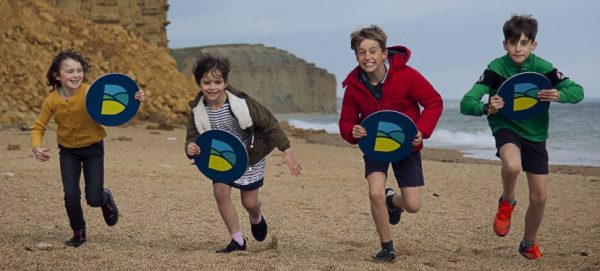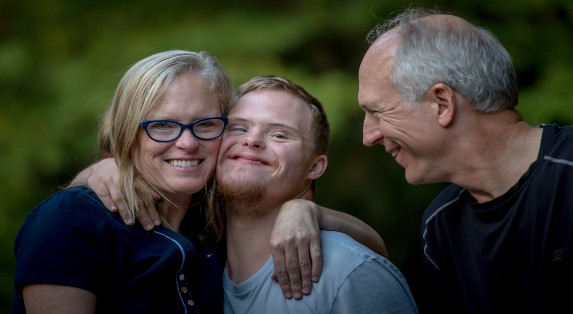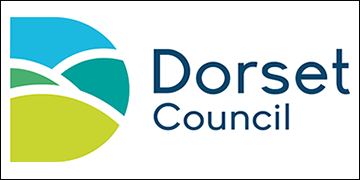Reflective sessions that encourage social workers to take national research and apply it to their local settings and the families and children they support, is one of a number of strategies Dorset Council is pushing to enhance the learning experience for its workforce.
Launched at the end of 2020, these bi-monthly sessions are open to seasoned and newly qualified social workers.
“What we do in these reflective sessions is give social workers the space to discuss national research, such as research in adverse childhood experiences (ACEs) for example, in their locality teams. The aim is to look at this national research through the lens of a child and their family, in say Weymouth, and bring it to life,” says Jack Corrigan, Dorset’s principal social worker (PSW), who leads on this work alongside the workforce development team.
Understanding local needs
In 2019, Dorset transitioned to a unitary authority and with it, the need for greater emphasis on understanding local needs across its six localities: Dorchester, Weymouth, Wareham, Ferndown, Bridport, and Blandford and Sturminster Newton.
Each locality has slightly different population needs. Having social workers that are able to understand these nuances is why the council is keen on emphasising the need for a local focus in the training that is delivered.
Jack collaborates with Dorset’s workforce development team to identify research areas that would be suitable for social workers to reflect on. The sessions include safe sleeping, impact chronologies and adverse childhood experiences. Although the sessions are in their infancy, Jack believes this reflective time will help social workers to think more locally and build deeper relationships with local partner agencies.

sourced from Dorset Council
Strong partnership links
Dorset already has strong links with local community services in mental health, local drug and alcohol, and child exploitation but is keen to see these partnerships deepen. These partner agencies already participate in the council’s targeted learning workshop sessions, which support people on Dorset’s ASYE programme and are run throughout the year.
“These local community organisations are really important because not only can they give ASYEs greater insight into the subject matter – ie child exploitation – but they give local solutions too,” says Jack. “That can be really important to a new learner because otherwise, the learning can seem quite nebulous. So in the case of a topic such as county lines, our aim is to link learning with local experience and with local resource.”
Helping social workers to think more locally and build deeper relationships with local partner agencies
Jack’s appointment in May 2020, to the PSW post and the recruitment of a dedicated coordinator that supports ASYEs, are further examples of how the council is working to create more structure around learning.
“Continuous learning and development is part of our culture here in Dorset,” says Jack. “This focus comes all the way up from leadership who appreciate the importance of these sessions, the need for ASYEs to have protected time and for social workers to have the opportunity to have time to reflect.”
Monthly drop-in sessions
Other learning opportunities Dorset offers staff include monthly two-hour drop-in sessions for newly-qualified social workers with practitioners who share their learning and experiences with social workers.
“I think there is a real optimism in Dorset about effective team learning and there is an openness to new ideas and coming up with new solutions. These drop-in sessions for newly-qualified social workers are a really good example of that,” says Jack. “So instead of these learners hearing from me constantly, these sessions draw on the expertise of experts from across the community, including from Bournemouth University and the community adolescent mental health service (CAMHS).”
“This CAMHS training opportunity actually came as a request from staff,” says Jack. “We went out and found this training and because we have good networks with other agencies, it was possible to do that.
“Learners were able to ask questions about local provisions and services as well as asking direct questions about the mental health and wellbeing of children and young people.”
Driving digital
There’s also a drive towards using more digital, using electronic resources which has been accelerated by the Covid-19 pandemic. Dorset stages all-day virtual workshops every other month that gather research from CCInform and Research in Practice publications allowing social workers to learn together and speak about research and practice. With the launch of Dorset’s social work academy in 2020, they have launched an information portal designed to be a resource-rich information tool for staff.
Jack says: “We are really optimistic about the work we are doing in this area and believe that is going some way to showcasing Dorset as a great place to work.”
Jack believes that colleague, Catherine Rundle, a newly qualified social worker in Dorset Children’s Services, is a leading example of how being creative, and outward-looking, helps to improve students’ learning experience.
Driving innovation – Catherine’s story
Dorset is always looking at ways to give us the best learning and support that they can offer, and that has helped to make me feel confident.
I have worked at Dorset for 11 years in both adults’ and children’s services but decided to professionalise my career in 2019. I became a registered social worker in November 2020 after gaining a first-class honours degree in social work, through Open University and supported by Dorset Council, and I am now completing my ASYE year with Dorset.
Working with experts
I am also one of a number of students collaborating on a book with social work guru Siobhan Maclean, and supporting the delivery of webinars to fellow social workers.
Siobhan is an experienced independent social worker, healthcare publisher and has 15 years of training experience. She is renowned in her field and has been instrumental within social work, theory and practice.
She had the idea to start the webinars but needed support to deliver them. That is where myself, a colleague from Dorset’s adult services and a variety of students and newly qualified workers from around the UK, stepped in to support and come together as a team.
The initiative is known as The Student Connect Team. Siobhan has agreed to deliver an ASYE workshop to Dorset and so will be able to provide her expertise to all our news learners.
Being able to have Siobhan involved with Dorset Council is an incredible opportunity. And the support from management here in Dorset and the learning and development team has been incredible.
If you’re interested in working at Dorset and being part of its improvement journey, check out the job opportunities. and learn more here about working life from others at the council.




 Facebook
Facebook X
X LinkedIn
LinkedIn Instagram
Instagram